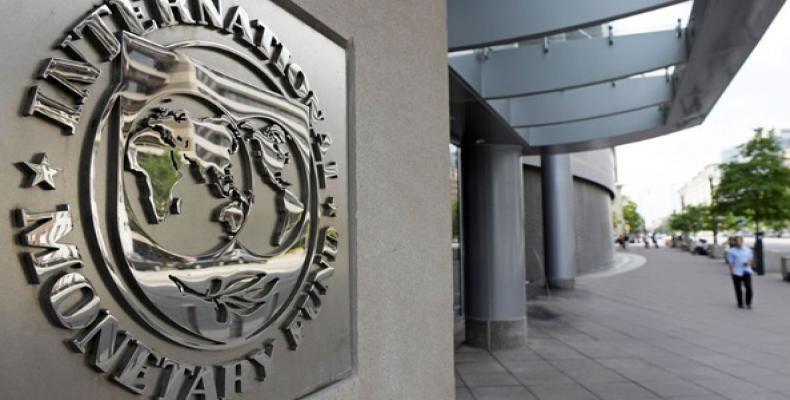Quito, March 14 (RHC)-- The International Monetary Fund (IMF) has announced that it's Executive Board approved a $4.2 billion loan for Ecuador with the objective of reducing the country’s debt-to-GDP ratio through four structural reforms, in line with common neo-liberal policies.
The new arrangement under the IMF’s Extended Fund Facility (EFF) enables the immediate payment of U.S.$652 million and consequent disbursements in the next three years. And even though it allows a longer period of repayment it also contains a "strong focus on structural adjustment" based on “commitments, including specific conditionality” which are “expected to have a strong focus on structural reforms.”
This model of lending “was established to provide assistance to countries experiencing serious payments imbalances because of structural impediments; or characterized by slow growth and an inherently weak balance of payments position,” according to the IMF. Countries such as Ukraine, Moldova, Bosnia Herzegovina, Egypt, Georgia, Jordan, Tunisia, Ivory Coast, Mongolia, and Sri Lanka also have this type of loan.
Such “structural” changes IMF Director, Christine Lagarde, explained will be made via a wage bill realignment, “optimization” of fuel subsidies, a reprioritization of capital and goods and services spending, and tax reforms.
The commitment regarding the national wage bill will most likely be done, as many economists and experts have pointed out, through mass layoffs in the public sector, reduction in the nominal salary and minimum wage. As well as reforms for the flexibilization of the workforce, which will also affect private sector workers.
A preview of this ensued between February 27 to March 1st, a few days after it was announced that a staff-level agreement with the IMF was reached when nearly 10,000 thousand government employees were fired according to local media reports. The government has not issued official figures.
“Between 1983 and 2003 Ecuador signed 16 letters of intent with the IMF, whose reforms also went in line with the reduction of the State, the estrangement of public spending, flexible labor relations, tax reforms, privatization; all in favor of the free market,” explains the economic historian, Juan Paz y Miño.
Thus as in other cases recent and past cases, the conditionality around fuel subsidies and public spending will likely reduce expenditure on areas such as education and health, and the concession of state-owned public service companies will cause an increase in domestic gas and electricity rates, according to the Director of the Center for Economic and Social Rights (CDES) Pablo Iturralde.
Iturralde is not so optimistic as he insists that they will impose the burden of such reforms to the people instead of controlling flows of capital, the commercial balance, or the tax contributions from the richest sectors.
Ecuador set for reforms with IMF deal

Related Articles
Commentaries
MAKE A COMMENT
All fields requiredMore Views
- McDonald’s loses over $7 billion in boycott over backing Israel
- Honduras kicks off 2025 election campaign with defense minister as the main candidate
- U.S. oil company Chevron declares 300 million dollars in taxes in Venezuela
- Cuba unyielding despite reinstatement on U.S. terrorist list
- Indigenous activist and political prisoner Leonard Peltier granted clemency by outgoing U.S. President Joe Biden

